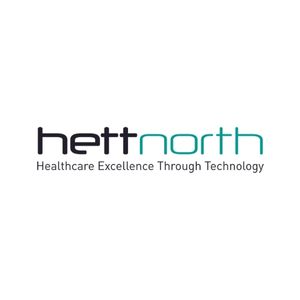2022 was a challenging year for the NHS, with the added pressure from Covid-19 still very much prevalent. Hospital waiting lists were still nearly 60% higher than before than pandemic, and this is continuing to pose many challenges on the healthcare system.
However, the pandemic is not the only factor having implications on the healthcare system. In this article we will explore the key challenges and successes experienced by the healthcare industry in 2022.
Key takeaways in healthcare from 2022
The start of 2022 was dominated by rising cases of Covid-19, coupled with growing hospital waiting lists. NHS England put a plan in place to tackle this issue by providing more patient choice and expanding surgical capacity. A key study was also published, highlighting a direct link between climate change, and increasing hospital submissions, which could have further implications for the NHS in the future.
NHS England also released the 2022/23 priorities and operational planning guidance, which set out their plans to rapidly and consistently adopt new models of care that exploit the full potential of digital technologies. This is in accordance with the NHS long term plan which aims to ensure health and care systems have a core level of digitalisation by March 2025. Key targets of the plan include a 60% registration to the NHS app by March 2023, all patients to be able to access digital-first primary care online by 2023/4 and for providers of community health services to be able to access local shared care records to enable urgent care response and virtual wards. It also outlines the plan for £200 million to be invested into further developing virtual wards, designed to help aid the efficiency of the healthcare system.
March was a particularly busy time in health policy, with the end of the financial year bringing many changes. Savid Javid set out his four priorities of prevention, personalisation, performance, and people which were geared towards building a true ‘National Health Service’ that delivers personalised care, empowered patients and fulfilling the promises of technological advancement. The NHS staff survey was also published with some eye-opening results, with a third of staff feeling burnt out and half reporting periods of being unwell due to work related stress.
As we moved into spring, The Goldacre Better, broader, safer review of using health data was published, showcasing the untapped potential of using NHS data to save lives. Furthermore, the Health and Care Act received Royal Assent in April 2022, with the key changes providing a more legislative footing for collaboration through new integrated care systems.
The summer showcased some key findings after a series of surveys. The GP patient survey revealed that although patients still had a good overall experience, there was still a sharp fall in their experience compared to the previous year. Furthermore, the General Medical Council training survey found that burnout in trainee doctors had reached its highest level since 2018.
The summer also saw the emergence of some critical challenges for the NHS, with all 10 ambulance services in England reaching ‘black alert status’. The president of the Royal College of Emergency Medicine stated the NHS was now at risk of breaking its fundamental promise to deliver timely care in an emergency.
Further plans for embedding digital technologies into the healthcare system were announced by Sajid Javid and Dr Tim Ferris, with the premise of long-term sustainability of health and social care being dependent on having the right digital foundations in place. The plan for digital adoption is set to achieve its goals by equipping the system digitally for better care, supporting independent healthy lives, accelerating adoption of proven tech and aligning oversight with accelerating digital transformation.
Autumn brought in new Prime Minister, Rishi Sunak and Health and Care secretary, Steve Barclay, along with the major fiscal event – the Autumn budget. This provided a funding boost to the NHS and adult social care, along with a review of how integrated care systems were operating.
The year ended with a series of strikes by nurses and ambulance staff over pay and conditions, followed by an ONS survey showcasing how the long waits for NHS treatment were impacting people’s health and employment.
Opportunities presented by digital adoption in 2023
Growing digital adoption in 2023 presents many opportunities for the healthcare system, allowing the NHS to tackle some of the key challenges faced in 2022 by creating a more efficient, joined up approach when delivering care. Through digitally empowering patients, the healthcare system will provide a better experience for all. Furthermore, the adoption of data architecture will support Goldacre’s review by enabling a data driven NHS that supports patient outcomes. Increasing efficiency within the NHS will also reduce the level of burnout currently experienced by healthcare staff, allowing for a more positive experience overall.Discover more about providing healthcare excellence through technology
To find out more about how technology and digital adoption will help the NHS overcome the cur
rent challenges, visit HETT North on 2nd March 2023. Secure your place by registering for free here.


%20(1).png?width=500&height=58&name=HETT%20insights%20logo%20RGB-04%20(1)%20(1).png)

